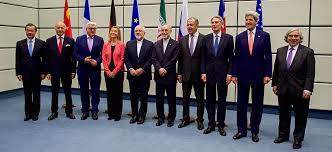Free Courses Sale ends Soon, Get It Now


Free Courses Sale ends Soon, Get It Now



Copyright infringement is not intended
Context: US restored sanctions waivers to Iran to allow international nuclear cooperation projects, as indirect American-Iranian talks on reviving the 2015 international nuclear deal with Tehran enter the final stretch.
More about news:
The 2015 JCPOA agreement
India-Iran
Impacts of Iran’s sanctions on India:
Conclusion:
India needs to emerge out with a clear foreign policy and choose an alliance to not only safeguard its interests but also to play an active role on the international stage.
© 2024 iasgyan. All right reserved